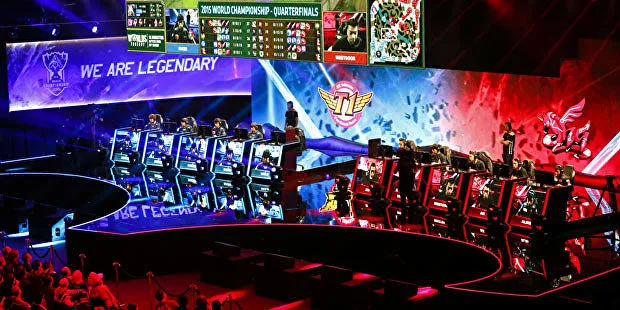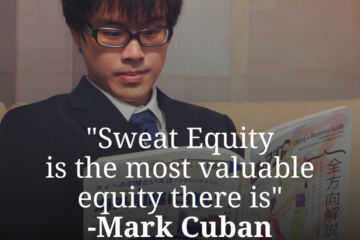Stay Away From Esports!

“Esports is a terrible business.”
Those were not my words but the words of billionaire, Shark Tank investor, Mark Cuban.
Now before you put me in the box of just another online gaming hater. Take it from the perspective of someone that used to play a lot of video games in his childhood.
In the past, I have played a lot of video games such as CS:GO to League of Legends to Minecraft spending countless hours of my youth wasted on video games. I regretted a lot of it, but it taught me some important lessons.
Currently, I have moved past that phase of my life and decided to put gaming behind because it is simply not sustainable.
Whatever, I am presenting to you today comes from personal experience, trusted sources in the industry and through interactions with a lot of insiders and outsiders.
Esports is a terrible business.
Well first of all — what is the effort needed to succeed in esports?
You are competing against millions of other gamers like yourself in a video game to be the top dog. You would have to invest thousands if not tens of thousands of hours into a single video game to be considered the best.
Just like traditional sports, except for the fact that your game developer could decide one day to erase all your progress with a few single lines of code and you would no longer the champion.
The equivalent of changing your basketball becoming a bowling ball the next day, and the day after that, banning layups as the rule of the game.
The average NBA career is roughly 4.5 years. The average esports player is 6 months -2 years. That is only if you are considered good enough to reach the average. The average retirement age of an esports player is 25 years old compared to some NBA players that can play up to their late 40s. Usually, players after their career is over transition into a managerial position or a coach.
When Mark Cuban, the owner of the Dallas Mavericks is saying that he will not invest into esports when he is the owner of a basketball team in one of the most competitive sports in the world (basketball) and one of the most competitive leagues (NBA), you know there’s something wrong with the industry.
The number of hours these players are practicing is completely unsustainable, from up to 12–15 hours a day on screen to play at a high performance level.
The worst part is, you do not have a skill. Gaming is not a skill. I talk about developing skillsets in my articles and on my business website: “Jeet Tan Copywriting”.
If you were to take away my business, my connections, and my money, as long as I have my skillset, I am confident that I can build everything up again.
Sports with basketball and soccer operate the same way, as long as you have a ball, the skills you have are still there.
With gaming, that’s not exactly the case. Taking an example of a MOBA like League of Legends. You have a skillset in a specific champion, or a specific strategy. You invested thousands of hours in perfecting your craft. Only for the next day to have a meta change and your progress to be essentially deleted forever.
A champion could be deleted just like that. A new game breaking item OR have a commonly used item to be removed forever.
It does not benefit team owners because of high player turnover rate. It does not benefit the players and it doesn’t benefit team investors. It only benefits perhaps the game developers and their sponsors (and even that is declining because of the game’s unsustainability) because according to the developers: “Having lots of changes keeps the game fresh and exciting”.
But to erase a person’s progress and skillset completely with the change of a few buttons makes players feel helpless and powerless.
That’s why you see games such as League of Legends having extremely high rates of toxicity, some of the worst experiences with human beings in my life came from playing that game by the way.
In addition, to actually becoming good in the game, you would have to sacrifice thousands of hours practicing in a skill that you could potentially lose overnight. This would not be the case if you invested in something practical like a degree or a skillset like programming.
Take away the programming degree, you still have the skill with you forever.
The lack of sustainability in esports can be seen in the dramas, and the petty bickering on social media between players, creators and critics. The level of frustration players are facing has no choice but to rear its ugly head out.
Popular League of Legends franchise owner, Andy “Reginald” Dinh of TSM is alleged being investigated for player harassment. Toyz, a former League of Legends world champion being caught drug trafficking. Vasilli, a player from China breaking equipment on stage from raging are examples that reflect the professionalism and the maturity of the industry.
Furthermore, when you are investing thousands if not tens of thousands of hours in front of a computer game, you will not be investing time into valuable relationships you could have with other people, doing exciting things outside of the game, and doing real s***.
This would not be the same with traditional sports where you are actually there in person with the people you are playing with. There is a kind of bonding experience that you get in person that you would not get with gaming.
And with that comes a catch-22, in order to be good in the game, you would have to spend thousands of hours sacrificing your life to be the best, but on the other hand if you do that you will neglect your real life. But if you don’t play a lot, then you won’t get good and therefore won’t be able to play professionally.
At the same time, if people don’t get outside and actually build things of value for society, then the social problems that gaming creates will be devastating.
Take a look at gaming addiction disorder, my friend — Cam Adair has been a researcher into this phenomenon.
China is now banning under 18s in playing video games.
Unless the gaming industry evolves to think sustainability and longevity, I believe that it is going to have a dramatic die off. Due to the fact that the millennial generation (my generation) are the ones that grew up with gaming and the effects of video game addiction, the future generations will probably have more support to lessen the effects of it.
Clearly viewership over esports is declining. As I’ve mentioned before “sustainability” is the name of the game here. The 1990s generation that grew up with gaming are currently entering the job market this past few years..
When you are young, you have all the time in the world to play games, to watch esports, to learn the game, but this is not the case when you are older. Unlike traditional sports, where you can just open up your TV after a long day of work, the matter of fact is, you do not need to understand the game to watch sports. But with e-sports, meta changes, new champions, new updates, it is simply too much and too heavy to keep up with the changes.
Even the pros that play the game for a living are saying the same thing.
Issues of toxicity within game and gaming regulations must be instigated & addressed by governing bodies and involved stakeholders. If not, the gaming companies will hold too much power.
However, many of these companies are only interested in short-term profits rather than long term sustainability so it is unlikely for this to be fixed any time soon. And as long as that is not addressed, for your health and mental sanity, stay away from esports, stay away from investing in it and stay away from competitive gaming.

The data does not lie. It’s a stagnant industry and even if it will somehow be saved in the future through its passionate content creators, entrepreneurs and investors, it will still always remain a niche market just because of the amount of time you need to invest to get good at the game, which means you will neglect some part of your life (catch-22). Competitive gaming is a hobby that requires a sacrifice of your soul. But it shouldn’t be that way.
Until the social issues of gaming are not tackled holistically, and having avenues for gamers to create real friendships outside of the game, a life outside the game, and for gamers to develop real life skills, this industry will remain a ticking time bomb.
If you enjoyed this article, be sure to follow me on Medium & Linkedin for content on social entrepreneurship, startups and personal development. More coming soon!



0 Comments